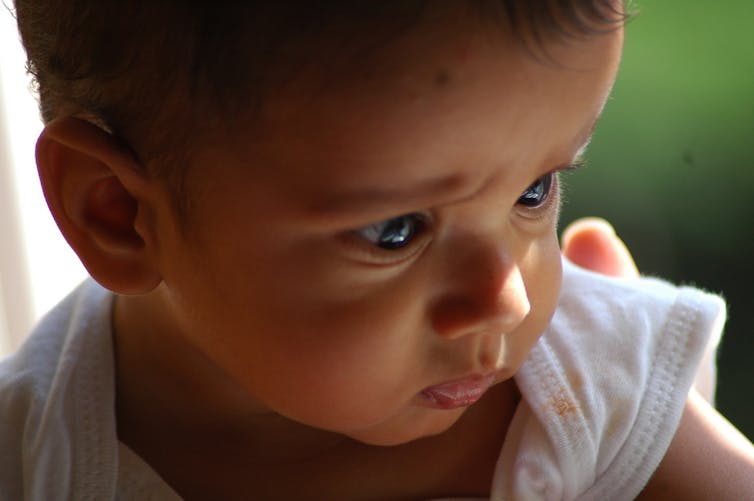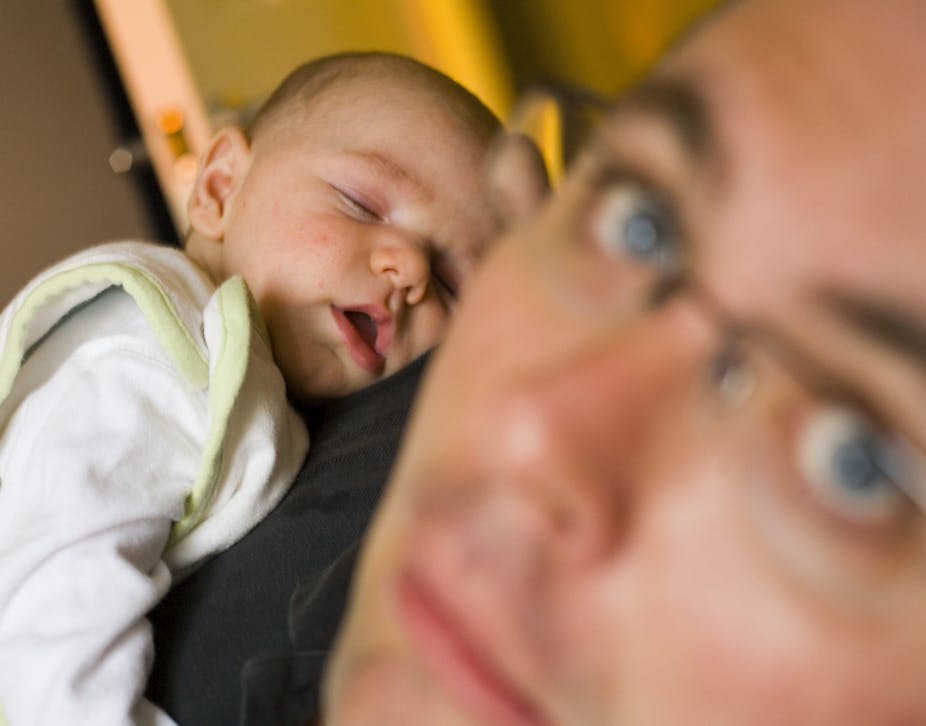The idea that mental illness can harm family relationships is not new. But it’s usually the mother’s parenting that has been the centre of attention.
So an article I co-wrote in today’s issue of the Medical Journal of Australia (MJA) breaks new ground by highlighting how important having a mentally well father can be for a child’s development. The effect of growing up with a father who has serious mental illness makes sobering reading.
Toddlers born to fathers with schizophrenia die at more than twice the rate of those with non-schizophrenic fathers, even after allowing for mothers’ mental health status. And young children with fathers who were psychiatric in-patients are ten times more likely to die from homicide. These fathers’ adult children are also more than twice as likely to suicide compared with children of well fathers.
Milder forms of mental ill health among fathers also have serious effects. Children of fathers who show signs of depression in the year after birth have more than three times the rate of behavioural problems by the time they reach school, compared with children of fathers who are not depressed.
The clear implication of these figures is that when serious mental illness is detected in men, they should be asked about their children. Steps should then be taken to protect the family as part of treatment.

But many men, even those with serious conditions, manage to provide loving care for their family.
Better possibilities
Our article includes the example of “Ian”, father of five in his mid-40s, who was diagnosed with bipolar disorder. He found it difficult to cope when his children came home from school and demanded his attention. And his older children felt embarrassed by his unpredictable behaviour.
At the encouragement of his partner, Ian began seeing a health professional and joined a mental illness peer support group, which happened to have, by chance, other fathers. Seeing how other dads were coping in their role as father and having an opportunity to discuss everyday issues associated with parenting helped Ian feel more “normal” and encouraged him to talk to his children about his illness.
He also learnt to be more alert to the warning signs of his condition, and has become more positively involved with his children. “The kids trust me more and I’m getting closer to them. We do things together like fixing cars, going on family outings, and just doing life,” he told us.
Our work suggests we should be asking men about their responsibility for children when they seek help, even for physical symptoms. Helping men cope with the demands of fathering might be a key part of their treatment for mental illness.
Our article is published in a MJA special issue, which is part of a fatherhood project by Children Of Parents with a Mental Illness (COPMI), non-profit organisation for families with parents with a mental illness.
COPMI’s fatherhood pack will be launched by Mark Butler, the minister for mental health and ageing, on April 20 and will be available on the COMPI website.
The fathers’ page should be compulsory viewing for all dads, not just those with a mental illness diagnosis. The children say very clearly that they love and want their fathers around even if he’s a long way short of perfect.
This is a great message for all us dads and should encourage those with mental illness to seek help.

